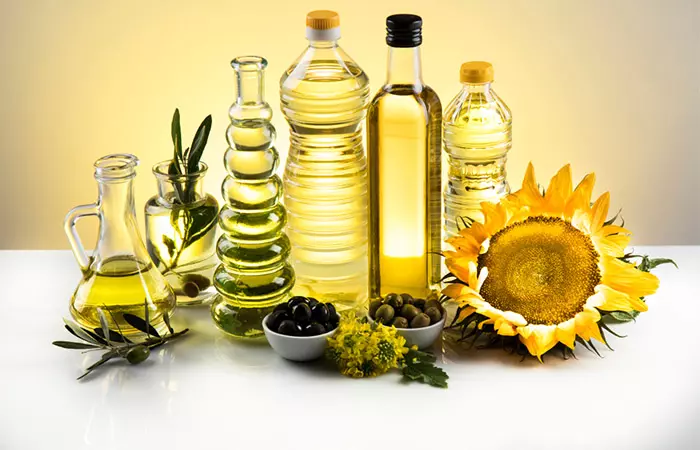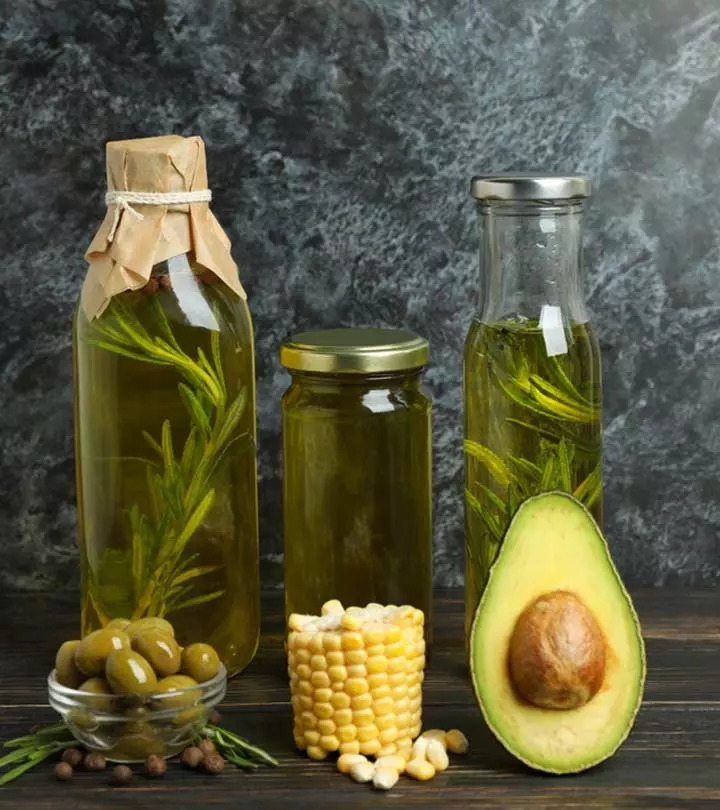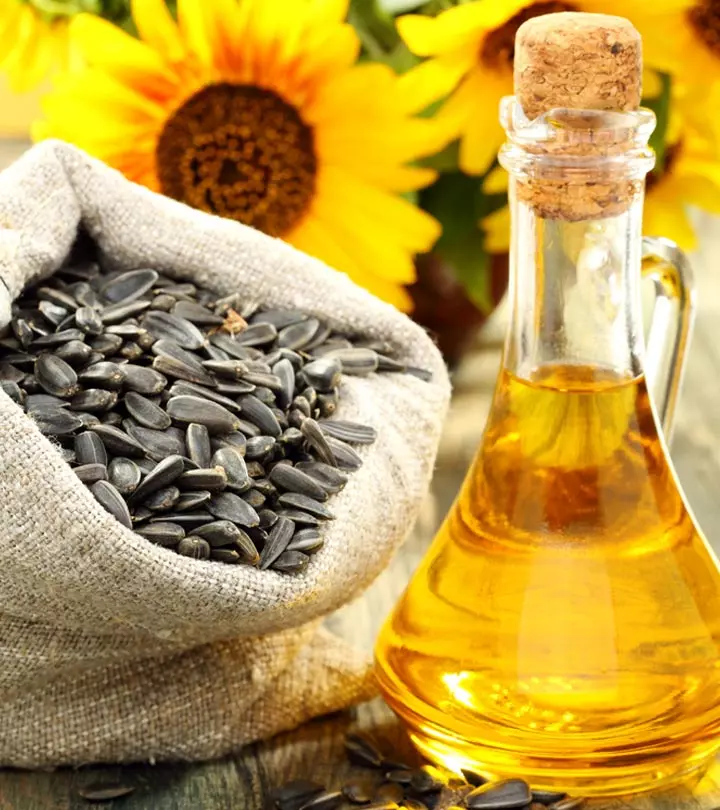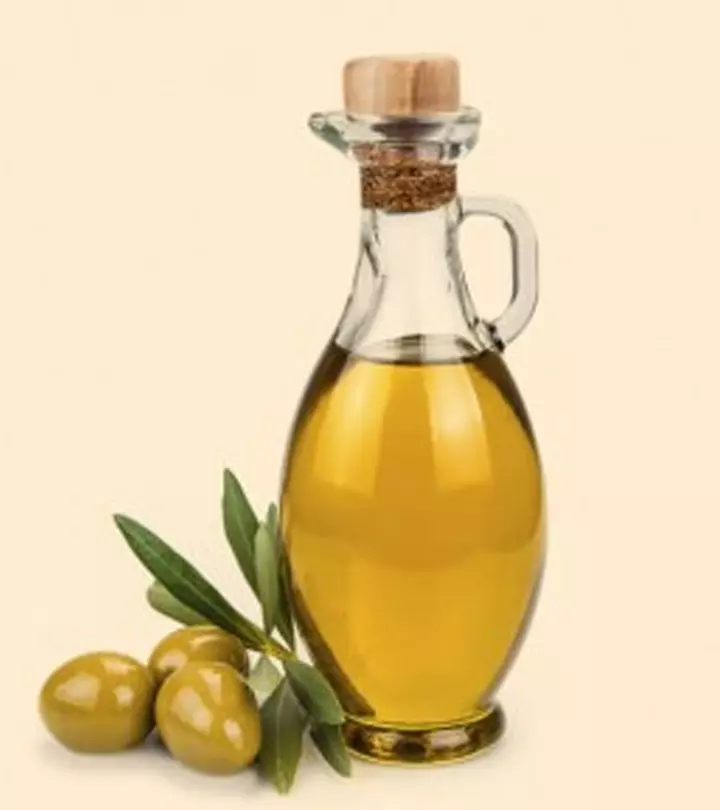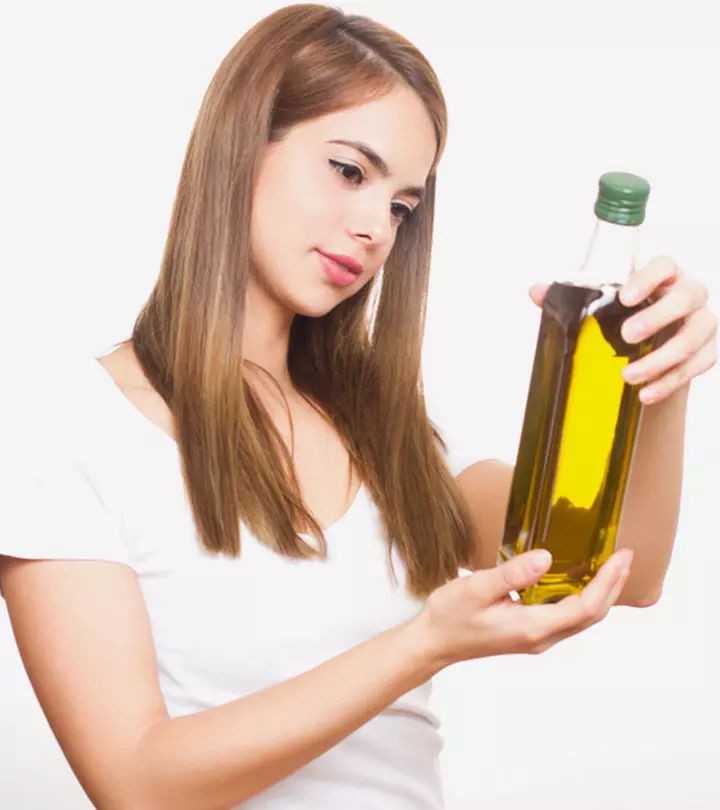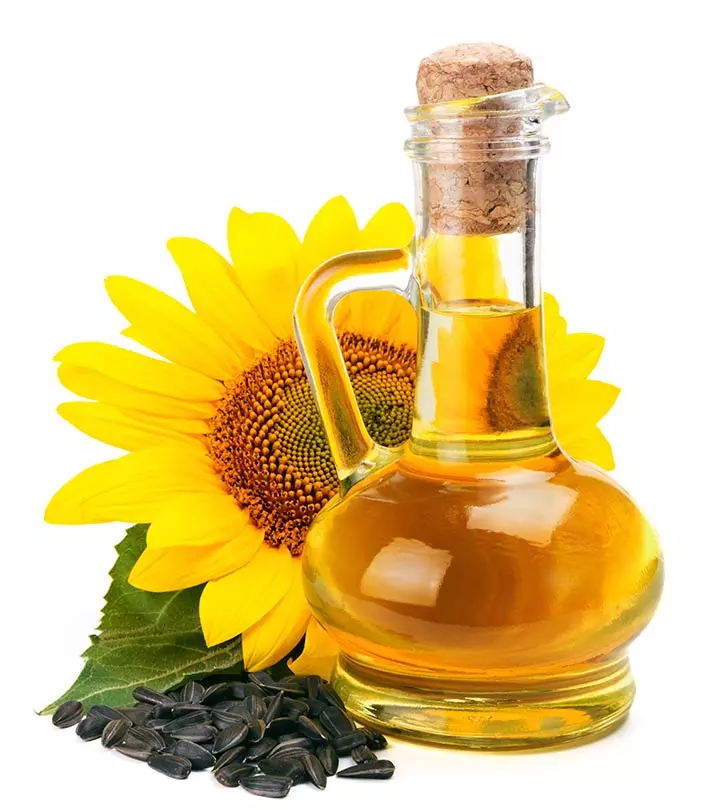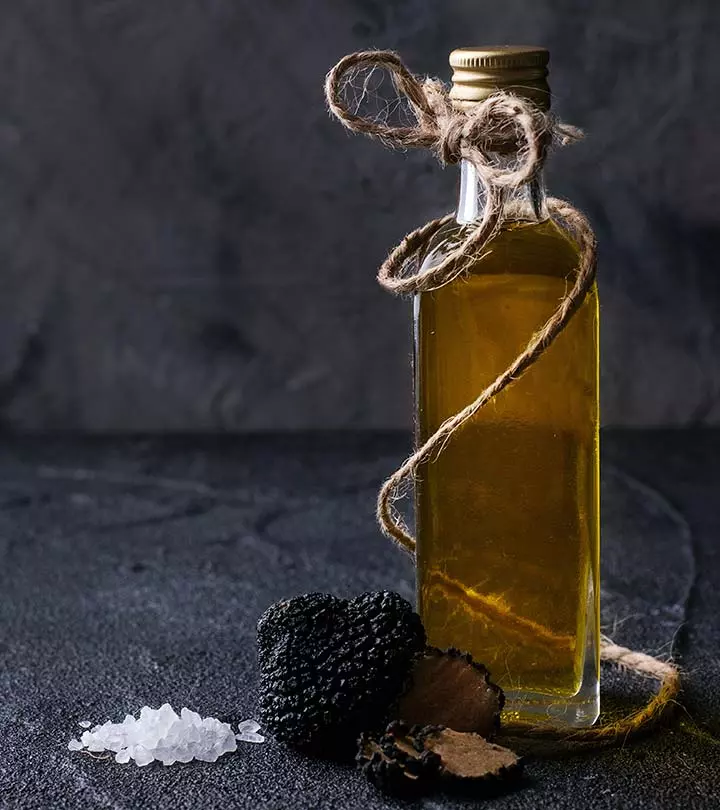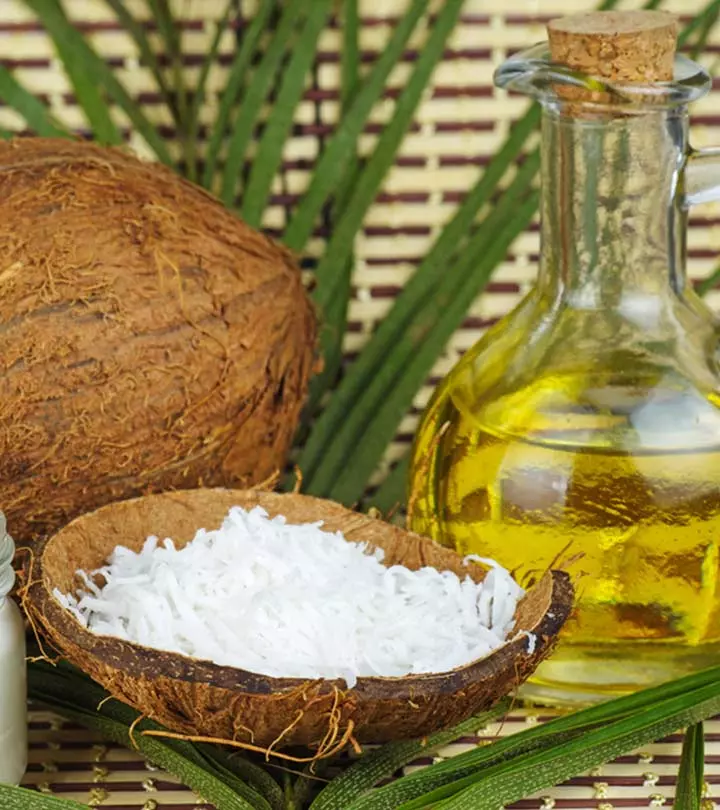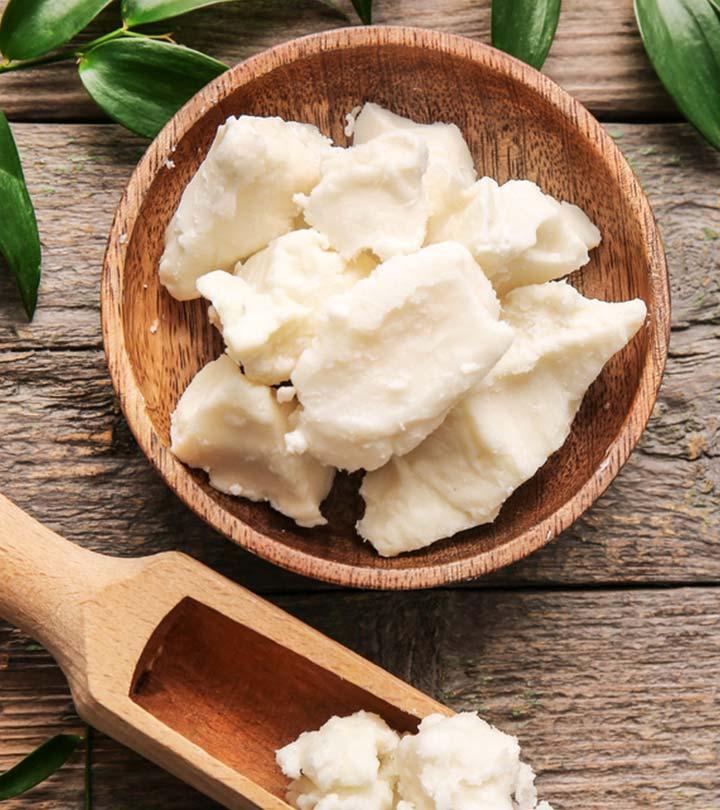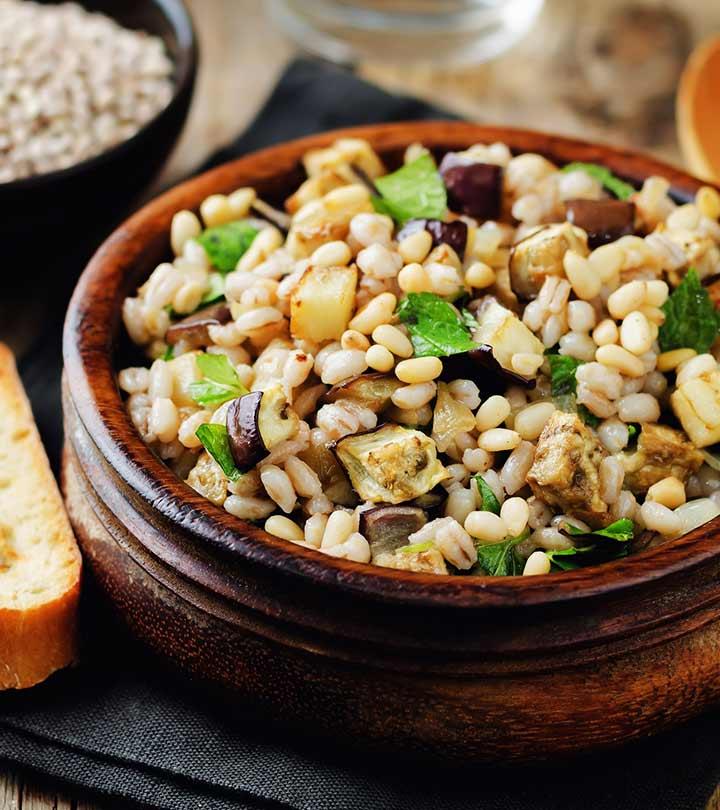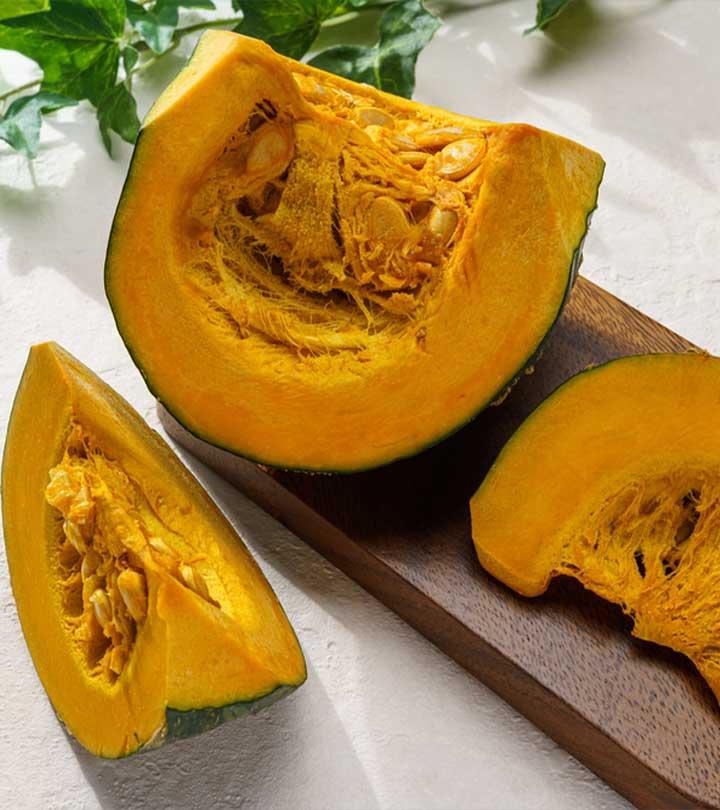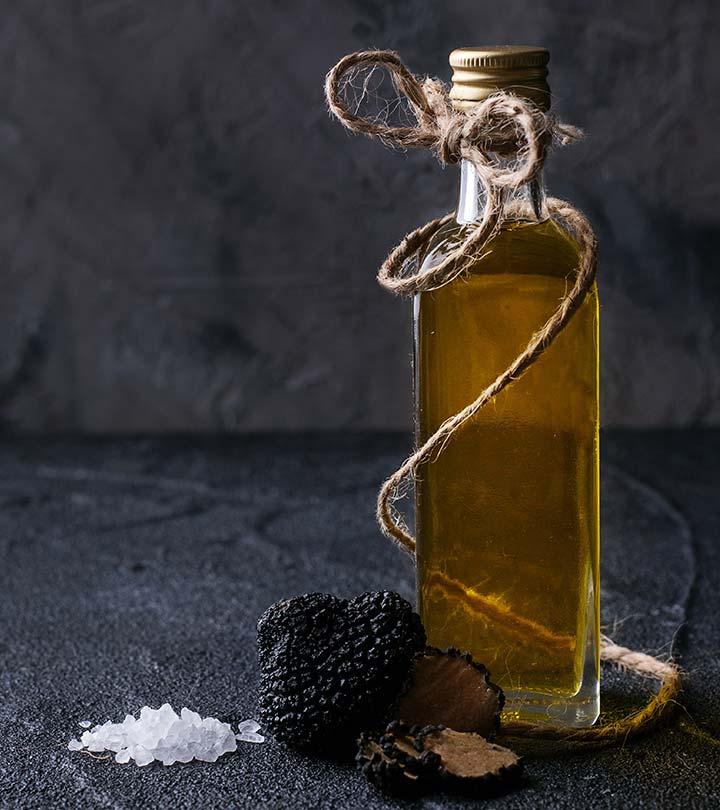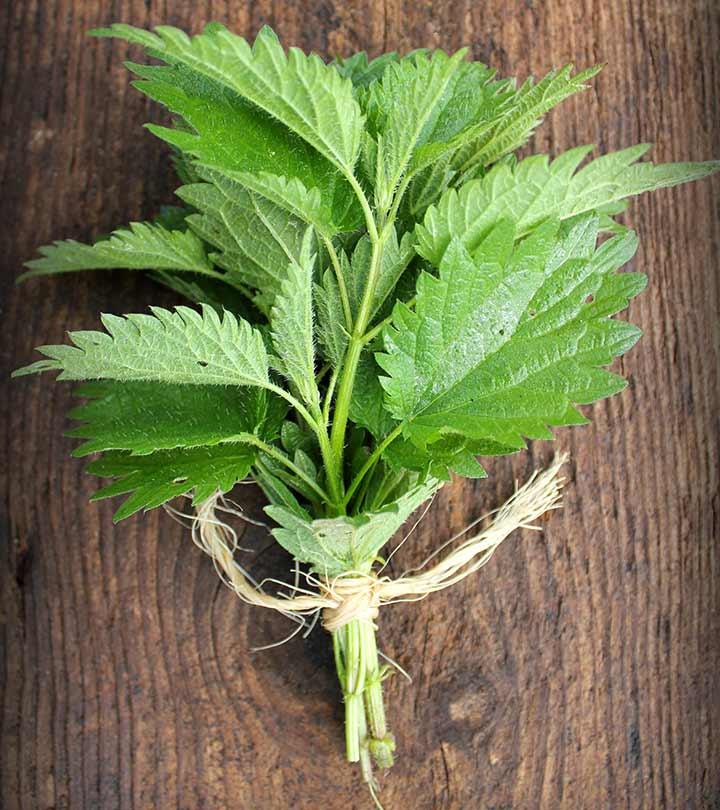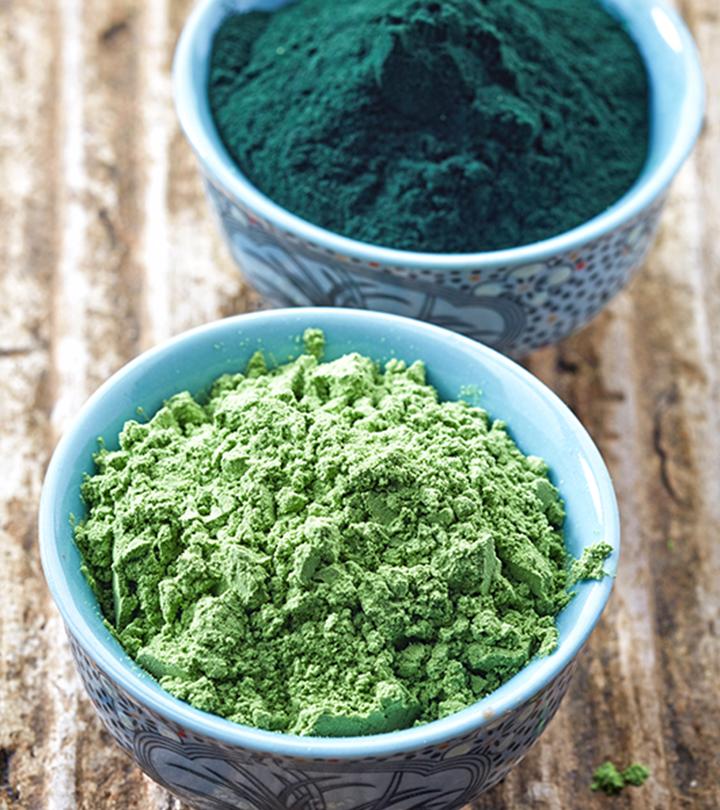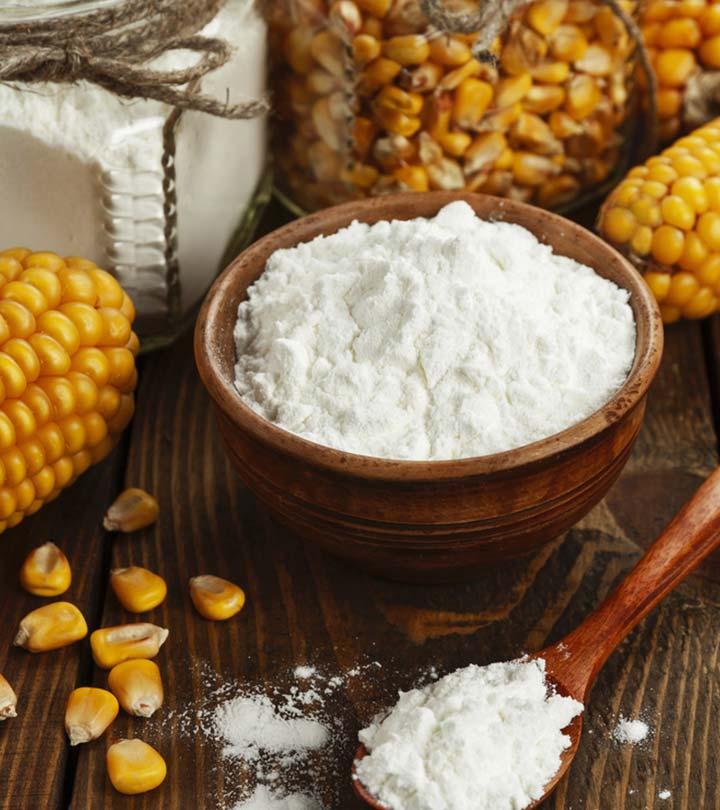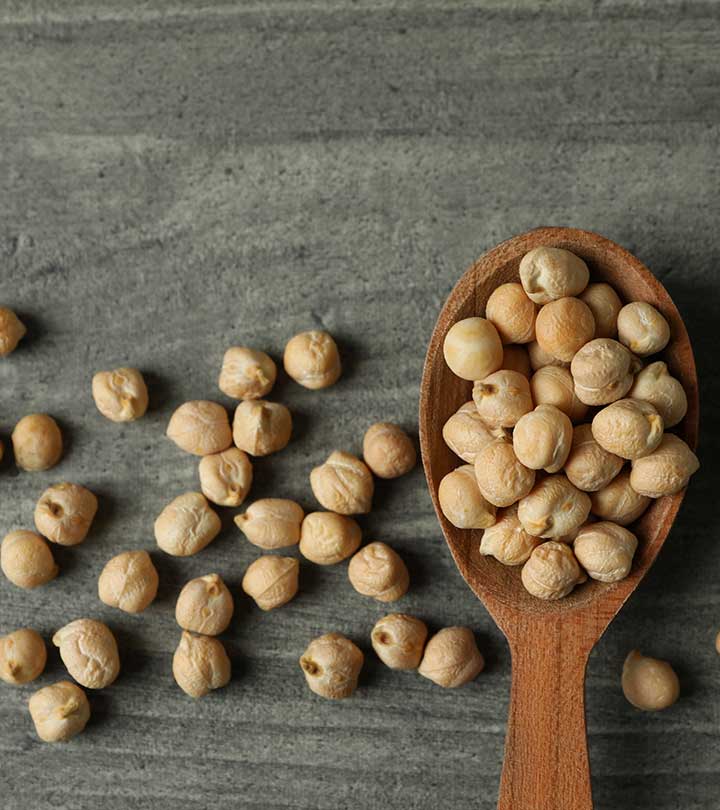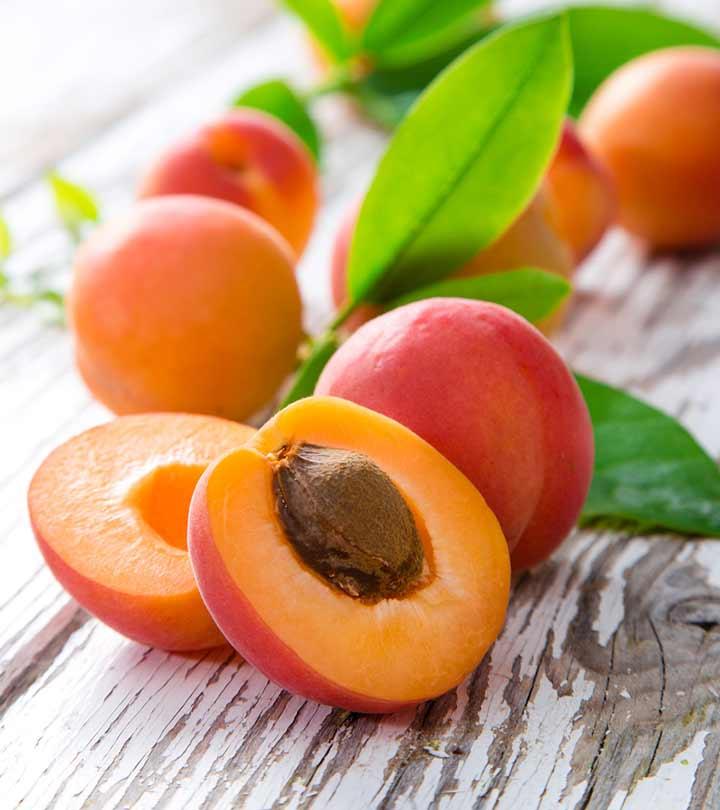Sunflower Oil Vs. Olive Oil – Which Is Better?
While both have benefits, one of them could be better for you and your family.
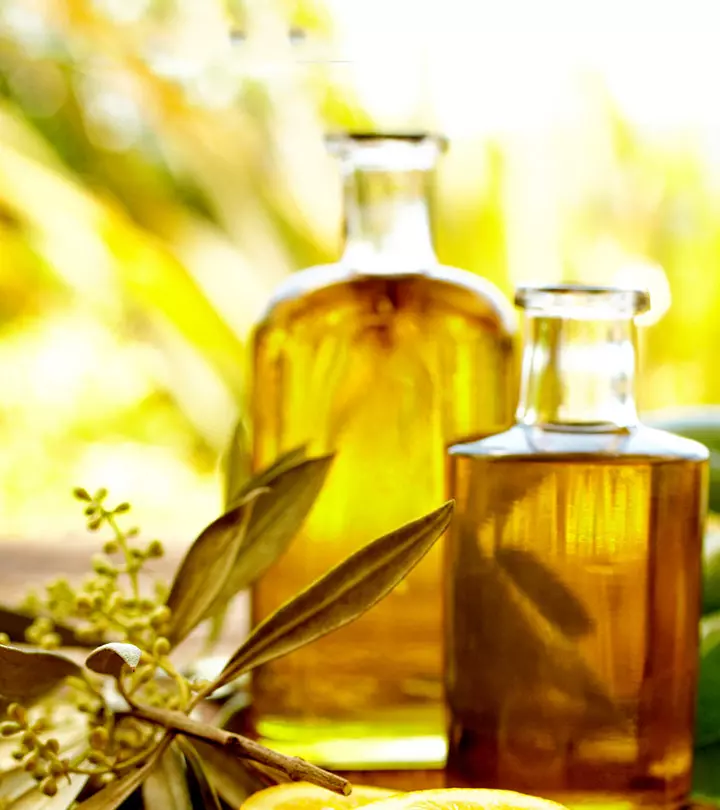
Image: iStock
While more of us are getting health-conscious, we are trying to make healthy choices in our diets as well. Sunflower oil vs. olive oil – which is better? This is a debate that many people are engaging in right now. While both these oils have their own health benefits, it is important to know which oil to use and when. It is also important to know what amounts of these oils are good to use. Is olive oil or sunflower oil bad for your health? Are there any adverse effects that need to be considered? Read on to make the right choice that best suits your health and lifestyle!
In This Article
Sunflower Oil Vs. Olive Oil
Let’s compare both sunflower oil vs olive oil to know which one is better for our health:
Fat
Both the oils are plant-based and contain roughly 120 calories per tablespoon. Both are rich in polyunsaturated and monounsaturated fats (1), (2). These kinds of fatty acids are known to bring down the bad cholesterol in your blood while promoting good cholesterol (3), (4).
- Linoleic Acid In Sunflower Oil: Sunflower oil contains almost 65% linoleic acid while olive oil contains just 10% of it. It also contains omega 3 fatty acids and omega-6 omega 6 fatty acids, which enhance neurological functions and reduce inflammation (5).
- Oleic Acid In Olive Oil: Oleic acid is a monounsaturated fatty acid, which is known to suppress oncogene in the body. So, the next time you use olive oil for your Caesar salad dressing, remember, you are fighting cancer as well! It is suggested that the consumption of meat may increase the risk of colorectal cancer. There is evidence that oleic acid may protect cells from mutating into cancerous cells and promote the death of cancerous cells (6), (7), (8), (9).
 Trivia
TriviaVitamin E
Vitamin E should be taken in healthy doses every day because of its various benefits. It reduces the formation of free radicals, which can lead to the development of certain types of cancer or chronic diseases. Vitamin E also prevents vascular complications like arteriosclerosis, chest pain, leg pain due to arterial blockage, etc.. It also alleviates diabetes and its symptoms. Vitamin E is used for asthma, skin disorders, cataracts, etc (10), (11), (12).
- Sunflower oil:It is a rich source of vitamin E. It has been found that vitamin E found in sunflower oil can also prevent rheumatoid arthritis and colon cancer. People from countries that use olive oil and sunflower oil as their main cooking oils are found to have lower asthma rates (1), (13), (14).
- Olive oil: This oil with a goldish-green color also contains a good proportion of Vitamin E. It is extensively used for cooking Mediterranean cuisine. The vitamin E found in other oils like canola, corn, or soybean is found in the gamma-tocopherol form, which has a negative impact on lung function. But olive oil and sunflower oil both contain vitamin E in the alpha-tocopherol form which has no such adverse effect (2).
Vitamin K
Vitamin K is another important nutrient that provides various health benefits. It serves as an important factor in the blood clotting mechanism and stops excessive bleeding. It also strengthens the bones and can prevent osteoporosis in older women.
- Sunflower Oil:
It has barely 1 microgram of vitamin K per tablespoon. - Olive Oil:
- It contains more than 8 micrograms of Vitamin K per tablespoon.
 Fun Fact
Fun FactMinerals
Plant oils contain fewer mineral oils than those obtained from animal sources. Here is a comparison between the mineral content in sunflower oil and olive oil
- Sunflower Oil:
Being a vegetable oil, it does not offer minerals at all (1). - Olive Oil: Olive oil is a fruit oil and has several minerals, although in trace amounts (17). It contains:
- Iron is an important component of hemoglobin, the oxygen carrier in your blood (18).
- Potassium maintains muscle tone and heart health (19).
- Sodium, which has functions similar to potassium
- Calcium is good for bone and teeth (20).
Choosing the right oil is key to bringing out the different flavors in your dishes. Check out the next section to learn which oil is ideal for cooking.
Sunflower Oil Vs. Olive Oil For Cooking
Sunflower oil has a neutral taste and a smoke point of 266.55°C, making it ideal for frying, deep-frying, and searing.
Extra virgin olive oil, on the other hand, is perfect for low and medium heat cooking, like sautéing and roasting. It is not suitable for high temperatures as its phenolic content tends to deteriorate by more than 40% (21).
You can incorporate either one or both oils as per your cooking preferences and the dishes you make.
Verdict: Olive Oil Is Better!
From the above comparison, it is clear that olive oil is healthier than sunflower oil in terms of Vitamin K content, fatty acids, and minerals. Olive oil does not interfere with the omega 6 fatty acid and omega 3 fatty acid balance, whereas sunflower oil may increase the ratio of these fatty acids. The polyunsaturated fats in sunflower oil can make it go rancid more easily than olive oil. Olive oil also has a fruity taste unlike sunflower oil, which is bland.
So, the next time you go shopping for cooking oil, make sure you make the right choice!
Janet, a blogger, solely relies on extra virgin olive oil as the exclusive fat for cooking and baking. She writes, “I pick my own olives, bring home the oil. Plus, I know how healthful olive oil (a mono-unsaturated fat) is. And, personally, I love its flavor (i).”
What oil do you use for cooking? Have you tried olive oil? Share your views with us in the comments section below.
Infographic: Nutritional Differences Between Sunflower Oil And Olive Oil
People are becoming health conscious and are trying to choose healthier food options for their diet. However, we see many people around confused about which oil is healthier, sunflower or olive oil?
Check out the infographic below to learn about the nutritional difference between both oils.

Illustration: StyleCraze Design Team
The presence of higher amounts of vitamin K, fats, and minerals in olive oil makes it a clear winner over sunflower oil. Moderate intake of these plant oils that are low in saturated fats may help strengthen bones, prevent osteoporosis, and stop excess bleeding. The vitamin E in these oils may help prevent colon cancer and rheumatoid arthritis. However, the polyunsaturated fats in sunflower oil can make it go rancid easily (as compared to olive oil). But the two oils can improve the ratio of omega 3 to 6. Hence, choose the right cooking oil to reap the right benefits.
Frequently Asked Questions
Should I avoid sunflower oil?
According to research, one of the drawbacks of sunflower oil is that it emits high levels of toxic aldehyde fumes when exposed to high heat for extended periods (22). Hence, you should limit your use of the oil and fry foods only at low heat. Also, reduce the use of sunflower oil for frying dipping, baking, grilling, roasting, and sautéing.
Which oil is better than olive oil?
Avocado oil has similar nutrition as olive oil and has a higher smoke point (it can be used for frying as well). Avocado oil could be a better alternative to olive oil.
Which oil is best for the heart?
Canola oil and olive oil are ideal for suppporting heart health (23).
Which oil is best for daily use?
Use olive oil for cooking and rice bran oil for frying whenever possible. These oils are ideal for daily use.
Key Takeaways
- Olive oil contains vitamin K and essential fatty acids. These nutrients help fight various inflammatory diseases in the body.
- Olive oil is rich in antioxidants. Hence, it is often preferred as a cooking oil by health-conscious people.
- While sunflower oil also has various health benefits, olive oil is a better choice due to its fruity flavor and high antioxidant content.
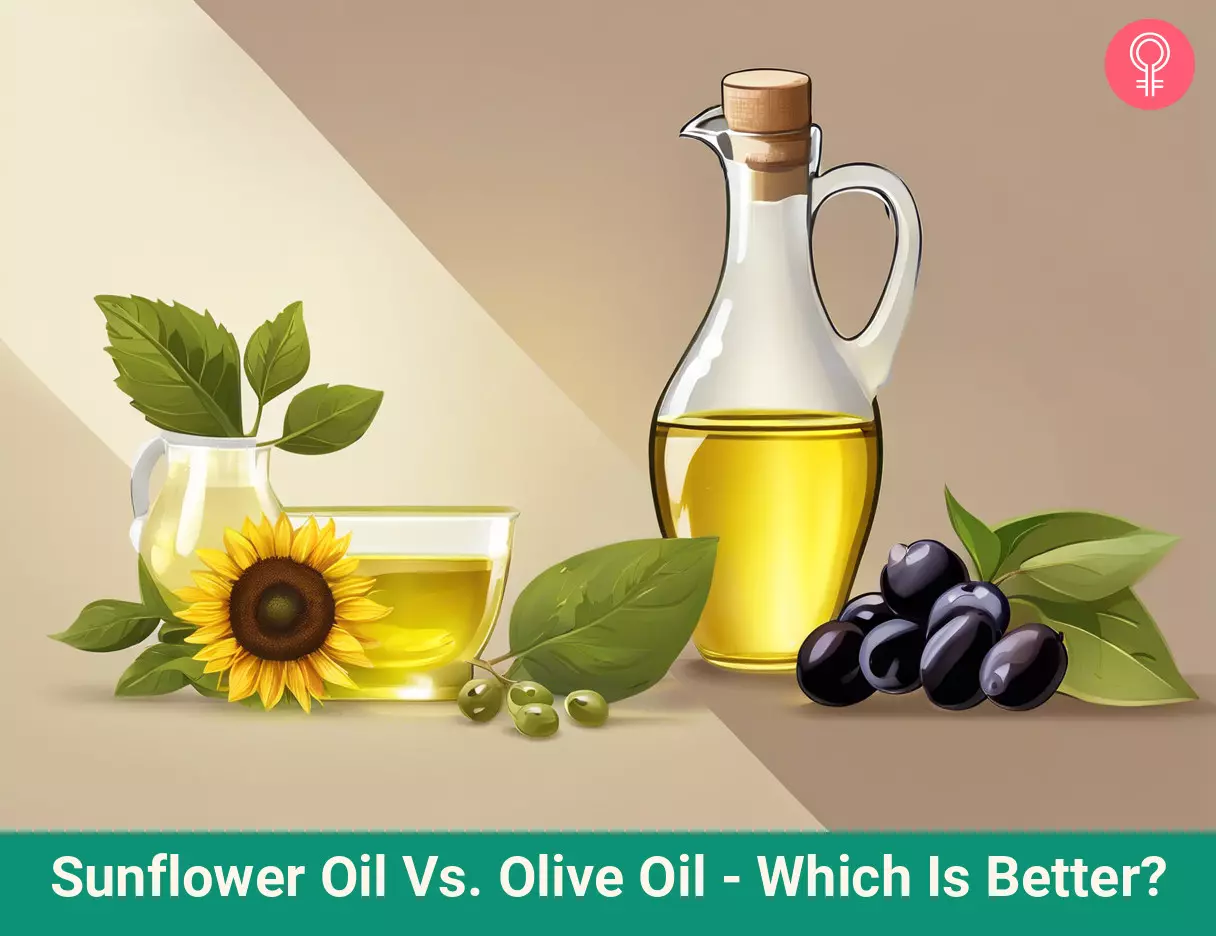
Image: Stable Diffusion/StyleCraze Design Team
Which oil is better for you? Sunflower or Olive? Scroll down to find out in this video to compare the two and discuss the benefits of each!
Personal Experience: Source
StyleCraze's articles are interwoven with authentic personal narratives that provide depth and resonance to our content. Below are the sources of the personal accounts referenced in this article.
i. Baking with olive oil,https://mykitcheninspain.blogspot.com/2012/11/baking-with-olive-oil.html
References
Articles on StyleCraze are backed by verified information from peer-reviewed and academic research papers, reputed organizations, research institutions, and medical associations to ensure accuracy and relevance. Read our editorial policy to learn more.
- FoodData Central – Oil sunflower
https://fdc.nal.usda.gov/fdc-app.html#/food-details/1750349/nutrients - FoodData Central – Oil olive extra virgin
https://fdc.nal.usda.gov/fdc-app.html#/food-details/748608/nutrients - Saturated Fatty Acids and Risk of Coronary Heart Disease: Modulation by Replacement Nutrients
https://www.ncbi.nlm.nih.gov/pmc/articles/PMC2943062/ - High–monounsaturated fatty acid diets lower both plasma cholesterol and triacylglycerol concentrations
https://academic.oup.com/ajcn/article/70/6/1009/4729123?login=false - Fatty Acids Composition of Vegetable Oils and Its Contribution to Dietary Energy Intake and Dependence of Cardiovascular Mortality on Dietary Intake of Fatty Acids
https://www.mdpi.com/1422-0067/16/6/12871/htm - Oleic acid the main monounsaturated fatty acid of olive oil suppresses Her-2/neu (erbB-2) expression and synergistically enhances the growth inhibitory effects of trastuzumab (Herceptin™) in breast cancer cells with Her-2/neu oncogene amplification
https://www.sciencedirect.com/science/article/pii/S0923753419478782 - Meat Consumption and Colorectal Cancer: a Review of Epidemiologic Evidence
https://academic.oup.com/nutritionreviews/article/59/2/37/1826072?login=false - Antitumor effect of oleic acid; mechanisms of action: a review
https://pubmed.ncbi.nlm.nih.gov/23588432/ - Olive oil intake and cancer risk: A systematic review and meta-analysis
https://journals.plos.org/plosone/article?id=10.1371/journal.pone.0261649 - Vitamin E and Cancer
https://www.sciencedirect.com/science/article/abs/pii/S008367290776017X - Vitamin E and Cardiovascular Disease
https://journals.lww.com/americantherapeutics/Abstract/2010/05000/Vitamin_E_and_Cardiovascular_Disease.20.aspx - The Use of Vitamin E in Type 2 Diabetes Mellitus
https://www.tandfonline.com/doi/abs/10.1080/10641960701361601 - Oilseed crop sunflower (Helianthus annuus) as a source of food: Nutritional and health benefits
https://www.ncbi.nlm.nih.gov/pmc/articles/PMC7500752/#fsn31783-bib-0047 - What Are the Effects of a Mediterranean Diet on Allergies and Asthma in Children?
https://www.frontiersin.org/articles/10.3389/fped.2017.00072/full - Vitamin K: an old vitamin in a new perspective
https://www.tandfonline.com/doi/full/10.4161/19381972.2014.968490 - On risks and benefits of iron supplementation recommendations for iron intake revisited
https://www.sciencedirect.com/science/article/abs/pii/S0946672X07000648 - FoodData Central – Oil olive salad or cooking
https://fdc.nal.usda.gov/fdc-app.html#/food-details/171413/nutrients - On risks and benefits of iron supplementation recommendations for iron intake revisited
https://www.sciencedirect.com/science/article/abs/pii/S0946672X07000648 - Potassium and Health
https://academic.oup.com/advances/article/4/3/368S/4591617?login=false - Calcium supplements: benefits and risks
https://onlinelibrary.wiley.com/doi/full/10.1111/joim.12394 - Therapeutic properties and use of extra virgin olive oil in clinical nutrition: a narrative review and literature update
https://www.ncbi.nlm.nih.gov/pmc/articles/PMC9003415/ - Toxic aldehyde generation in and food uptake from culinary oils during frying practices: peroxidative resistance of a monounsaturate-rich algae oil
https://www.ncbi.nlm.nih.gov/pmc/articles/PMC6412032/ - Cooking oil/fat consumption and deaths from cardiometabolic diseases and other causes: prospective analysis of 521120 individuals
https://www.ncbi.nlm.nih.gov/pmc/articles/PMC8048052/
- FoodData Central – Oil sunflower
- FoodData Central – Oil sunflower
https://fdc.nal.usda.gov/fdc-app.html#/food-details/1750349/nutrients - FoodData Central – Oil olive extra virgin
https://fdc.nal.usda.gov/fdc-app.html#/food-details/748608/nutrients - Saturated Fatty Acids and Risk of Coronary Heart Disease: Modulation by Replacement Nutrients
https://www.ncbi.nlm.nih.gov/pmc/articles/PMC2943062/ - High–monounsaturated fatty acid diets lower both plasma cholesterol and triacylglycerol concentrations
https://academic.oup.com/ajcn/article/70/6/1009/4729123?login=false - Fatty Acids Composition of Vegetable Oils and Its Contribution to Dietary Energy Intake and Dependence of Cardiovascular Mortality on Dietary Intake of Fatty Acids
https://www.mdpi.com/1422-0067/16/6/12871/htm - Oleic acid the main monounsaturated fatty acid of olive oil suppresses Her-2/neu (erbB-2) expression and synergistically enhances the growth inhibitory effects of trastuzumab (Herceptin™) in breast cancer cells with Her-2/neu oncogene amplification
https://www.sciencedirect.com/science/article/pii/S0923753419478782 - Meat Consumption and Colorectal Cancer: a Review of Epidemiologic Evidence
https://academic.oup.com/nutritionreviews/article/59/2/37/1826072?login=false - Antitumor effect of oleic acid; mechanisms of action: a review
https://pubmed.ncbi.nlm.nih.gov/23588432/ - Olive oil intake and cancer risk: A systematic review and meta-analysis
https://journals.plos.org/plosone/article?id=10.1371/journal.pone.0261649 - Vitamin E and Cancer
https://www.sciencedirect.com/science/article/abs/pii/S008367290776017X - Vitamin E and Cardiovascular Disease
https://journals.lww.com/americantherapeutics/Abstract/2010/05000/Vitamin_E_and_Cardiovascular_Disease.20.aspx - The Use of Vitamin E in Type 2 Diabetes Mellitus
https://www.tandfonline.com/doi/abs/10.1080/10641960701361601 - Oilseed crop sunflower (Helianthus annuus) as a source of food: Nutritional and health benefits
https://www.ncbi.nlm.nih.gov/pmc/articles/PMC7500752/#fsn31783-bib-0047 - What Are the Effects of a Mediterranean Diet on Allergies and Asthma in Children?
https://www.frontiersin.org/articles/10.3389/fped.2017.00072/full - Vitamin K: an old vitamin in a new perspective
https://www.tandfonline.com/doi/full/10.4161/19381972.2014.968490 - On risks and benefits of iron supplementation recommendations for iron intake revisited
https://www.sciencedirect.com/science/article/abs/pii/S0946672X07000648 - FoodData Central – Oil olive salad or cooking
https://fdc.nal.usda.gov/fdc-app.html#/food-details/171413/nutrients - On risks and benefits of iron supplementation recommendations for iron intake revisited
https://www.sciencedirect.com/science/article/abs/pii/S0946672X07000648 - Potassium and Health
https://academic.oup.com/advances/article/4/3/368S/4591617?login=false - Calcium supplements: benefits and risks
https://onlinelibrary.wiley.com/doi/full/10.1111/joim.12394 - Therapeutic properties and use of extra virgin olive oil in clinical nutrition: a narrative review and literature update
https://www.ncbi.nlm.nih.gov/pmc/articles/PMC9003415/ - Toxic aldehyde generation in and food uptake from culinary oils during frying practices: peroxidative resistance of a monounsaturate-rich algae oil
https://www.ncbi.nlm.nih.gov/pmc/articles/PMC6412032/ - Cooking oil/fat consumption and deaths from cardiometabolic diseases and other causes: prospective analysis of 521120 individuals
https://www.ncbi.nlm.nih.gov/pmc/articles/PMC8048052/
Read full bio of Gabrielle Kane
Read full bio of Ravi Teja Tadimalla
Read full bio of Moksha Gandhi





